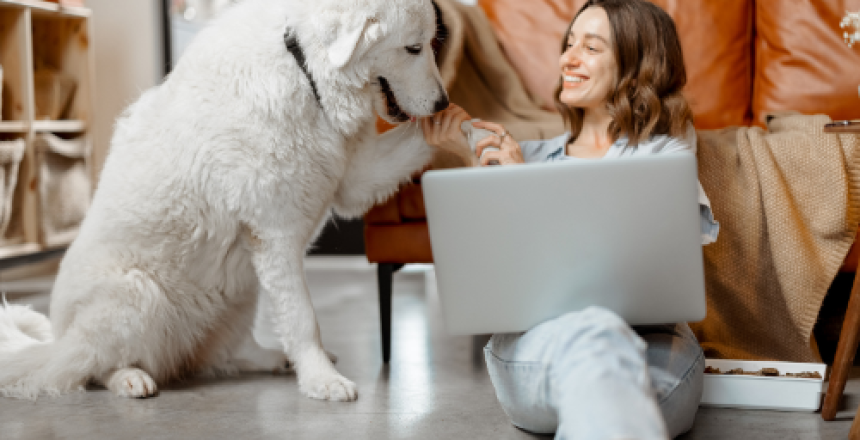
Today, we briefly examined how dogs have been by our side as friends and helpers for tens of thousands of years.
The first human-dog bonding was traced back at least 14,000 years ago to the Bonn-Oberkassel dogs, two canine companions who were found buried next to their humans at a basalt quarry in Bonn, Germany. While they were discovered by quarrymen and excavated in 1914, archaeologists recently took another look at the skeletons and pieced together a sad but heartwarming tale.
One of the dogs was an almost 7-month-old puppy that died of canine distemper. You may recognize this as one of the diseases we vaccinate our dogs against today. Without care, a young dog with this disease will only live for around three weeks. But the fact that this one lived for so long proves it was considered a valued friend. The puppy would have been devotedly cared for — kept dry, warm, bathed clean of waste, and fed. While this is such a heartbreaking ending, it shows that the human-dog bond, based on love and friendship, has been around for a long time.
Since then, this relationship has only expanded and grown stronger. Dogs have been, and still are, used for hunting, sledging, herding, and in the military. However, the majority of dogs are kept as pets. See the Husky: it was bred by humans to be a perfect sledgedog with a strong team spirit, a natural resistance to cold temperatures, endurance, power, and speed. While Huskies are still used for sledging, you often see them kept as pets in regular households. This shows how a dog can adapt to the human lifestyle, keeping the same bond and mutual respect.
We can definitely say that our lifestyle has changed from 14,000 years ago! Thanks to modern technology, we live in a world where not every dog is a working dog, although there are still lots of jobs that they help us with. We seem attracted to the idea of having a dog in the house. I think this is because a dog is easy to love and is eager to give us love right back. That powerful bond can be a comforting constant when life changes around us.
Life can take unexpected turns – we might lose a job, have to move to a new town, decide to start a family, or even win the lottery! Change, whether good or bad, can be hard to manage. We even struggle with small adjustments like eating healthier or exercising more. We know it will help us in the long run, but we’re so used to living the way we always have. Our dogs lend a helping paw through everything, encourage us when we feel blue, and are always ready for an invigorating walk or game of fetch to get us moving and off the couch.
How has your dog helped you through life’s challenges?
Next time, we’ll explore how service dogs, including hearing dogs, fulfil this bond in their own special way.
Click here to read more about the “Palaeolithic Pupper.”
- Tags: bond human and canine, bonding, dog helpers, pet dog, relationship between dog and human, the palaeolithic pupper, Your Hearing Dog
